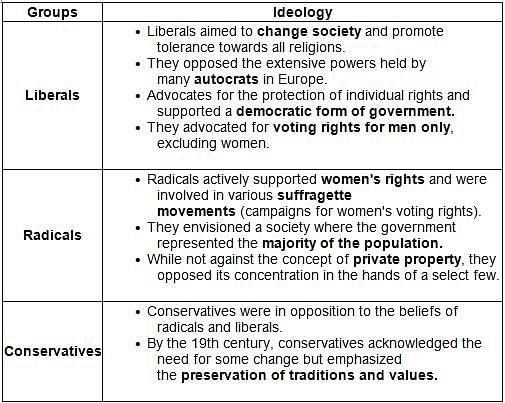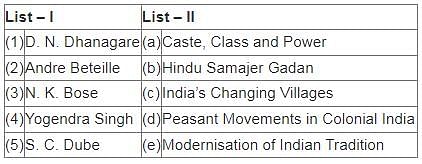Test: Social Movement - UGC NET MCQ
10 Questions MCQ Test - Test: Social Movement
Which one of the following social groups supported women's rights and organised various suffragette movements?
| 1 Crore+ students have signed up on EduRev. Have you? Download the App |
Select the correct statements from the ones given below :
1. Construction of cultural identity is an integral part of the collective mobilisation of new social movements.
2. Construction of class identity is an integral part of old social movements.
With reference to Extinction Rebellion, also referred to as ‘XR’, consider the following statements.
1. It was launched in the United Kingdom in 2018, as a response to a report by the United Nations Intergovernmental Panel on Climate Change (IPCC).
2. It wants governments to “Tell the Truth”, to “Act Now”, and to “Go Beyond Politics” in order to confront the climate and ecological emergency.
3. The movement claims to have been inspired by 15 major civil disobedience movements around the world, including, India’s Struggle for Independence.
Which of the statements given above is/are correct?
Consider the following statements regarding Women's participation in movements:
1. For social, economic and political rights of specific categories of people like tribal, peasants and industrial workers.
2. For improvement in conditions of work and autonomy to women
3. For equal remuneration for work.
4. In general social movements on issues affecting women and children like abortions, adoption of children, sexual exploitation.
Which of the statements given above is/are correct?
With reference to the Faith for Earth initiative, which of the following statements are correct?
1. The UN Environment Programme launched the Faith for Earth Initiative in 2017.
2. It aims to incorporate faith organisations in achieving sustainable development.
3. The Faith for Earth Coalition comprises three Coalition Councils.
4. The Faith-Science Consortium is established as a bridge between the traditionally secular world of science and the world of faith.
5. Faith for Earth National Coordination Hub has been set up in the USA.
Select the correct answer using the code given below.
According to R. Wallis, the three broad categories: World-affirming, World-rejecting and World accomodating movements are associated with which of the following?
Who among the following is the founder of the social activist organisation called ‘Global March Against Child Labour’?



















